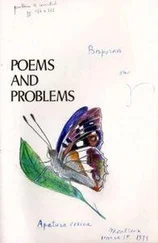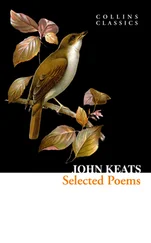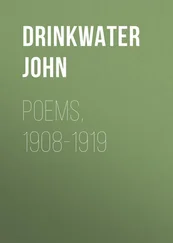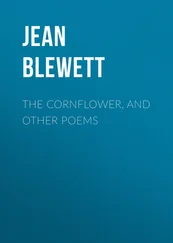John Keats - Poems 1817
Здесь есть возможность читать онлайн «John Keats - Poems 1817» весь текст электронной книги совершенно бесплатно (целиком полную версию без сокращений). В некоторых случаях можно слушать аудио, скачать через торрент в формате fb2 и присутствует краткое содержание. Год выпуска: 2005, Жанр: Поэзия, на английском языке. Описание произведения, (предисловие) а так же отзывы посетителей доступны на портале библиотеки ЛибКат.
- Название:Poems 1817
- Автор:
- Жанр:
- Год:2005
- ISBN:нет данных
- Рейтинг книги:4 / 5. Голосов: 1
-
Избранное:Добавить в избранное
- Отзывы:
-
Ваша оценка:
- 80
- 1
- 2
- 3
- 4
- 5
Poems 1817: краткое содержание, описание и аннотация
Предлагаем к чтению аннотацию, описание, краткое содержание или предисловие (зависит от того, что написал сам автор книги «Poems 1817»). Если вы не нашли необходимую информацию о книге — напишите в комментариях, мы постараемся отыскать её.
Poems 1817 — читать онлайн бесплатно полную книгу (весь текст) целиком
Ниже представлен текст книги, разбитый по страницам. Система сохранения места последней прочитанной страницы, позволяет с удобством читать онлайн бесплатно книгу «Poems 1817», без необходимости каждый раз заново искать на чём Вы остановились. Поставьте закладку, и сможете в любой момент перейти на страницу, на которой закончили чтение.
Интервал:
Закладка:
Of thy dark hair that extends
Into many graceful bends:
As the leaves of Hellebore
Turn to whence they sprung before.
And behind each ample curl
Peeps the richness of a pearl.
Downward too flows many a tress
With a glossy waviness;
Full, and round like globes that rise
From the censer to the skies
Through sunny air. Add too, the sweetness
Of thy honied voice; the neatness
Of thine ankle lightly turn'd:
With those beauties, scarce discrn'd,
Kept with such sweet privacy,
That they seldom meet the eye
Of the little loves that fly
Round about with eager pry.
Saving when, with freshening lave,
Thou dipp'st them in the taintless wave;
Like twin water lillies, born
In the coolness of the morn.
O, if thou hadst breathed then,
Now the Muses had been ten.
Couldst thou wish for lineage higher
Than twin sister of Thalia?
At least for ever, evermore,
Will I call the Graces four.
Hadst thou liv'd when chivalry
Lifted up her lance on high,
Tell me what thou wouldst have been?
Ah! I see the silver sheen
Of thy broidered, floating vest
Cov'ring half thine ivory breast;
Which, O heavens! I should see,
But that cruel destiny
Has placed a golden cuirass there;
Keeping secret what is fair.
Like sunbeams in a cloudlet nested
Thy locks in knightly casque are rested:
O'er which bend four milky plumes
Like the gentle lilly's blooms
Springing from a costly vase.
See with what a stately pace
Comes thine alabaster steed;
Servant of heroic deed!
O'er his loins, his trappings glow
Like the northern lights on snow.
Mount his back! thy sword unsheath!
Sign of the enchanter's death;
Bane of every wicked spell;
Silencer of dragon's yell.
Alas! thou this wilt never do:
Thou art an enchantress too,
And wilt surely never spill
Blood of those whose eyes can kill.
TO
HOPE.
When by my solitary hearth I sit,
And hateful thoughts enwrap my soul in gloom;
When no fair dreams before my "mind's eye" flit,
And the bare heath of life presents no bloom;
Sweet Hope, ethereal balm upon me shed,
And wave thy silver pinions o'er my head.
Whene'er I wander, at the fall of night,
Where woven boughs shut out the moon's bright ray,
Should sad Despondency my musings fright,
And frown, to drive fair Cheerfulness away,
Peep with the moon-beams through the leafy roof,
And keep that fiend Despondence far aloof.
Should Disappointment, parent of Despair,
Strive for her son to seize my careless heart;
When, like a cloud, he sits upon the air,
Preparing on his spell-bound prey to dart:
Chace him away, sweet Hope, with visage bright,
And fright him as the morning frightens night!
Whene'er the fate of those I hold most dear
Tells to my fearful breast a tale of sorrow,
O bright-eyed Hope, my morbid fancy cheer;
Let me awhile thy sweetest comforts borrow:
Thy heaven-born radiance around me shed,
And wave thy silver pinions o'er my head!
Should e'er unhappy love my bosom pain,
From cruel parents, or relentless fair;
O let me think it is not quite in vain
To sigh out sonnets to the midnight air!
Sweet Hope, ethereal balm upon me shed.
And wave thy silver pinions o'er my head!
In the long vista of the years to roll,
Let me not see our country's honour fade:
O let me see our land retain her soul,
Her pride, her freedom; and not freedom's shade.
From thy bright eyes unusual brightness shed—
Beneath thy pinions canopy my head!
Let me not see the patriot's high bequest,
Great Liberty! how great in plain attire!
With the base purple of a court oppress'd,
Bowing her head, and ready to expire:
But let me see thee stoop from heaven on wings
That fill the skies with silver glitterings!
And as, in sparkling majesty, a star
Gilds the bright summit of some gloomy cloud;
Brightening the half veil'd face of heaven afar:
So, when dark thoughts my boding spirit shroud,
Sweet Hope, celestial influence round me shed,
Waving thy silver pinions o'er my head.
February, 1815.
IMITATION OF SPENSER.
Now Morning from her orient chamber came,
And her first footsteps touch'd a verdant hill;
Crowning its lawny crest with amber flame,
Silv'ring the untainted gushes of its rill;
Which, pure from mossy beds, did down distill,
And after parting beds of simple flowers,
By many streams a little lake did fill,
Which round its marge reflected woven bowers,
And, in its middle space, a sky that never lowers.
There the king-fisher saw his plumage bright
Vieing with fish of brilliant dye below;
Whose silken fins, and golden scales' light
Cast upward, through the waves, a ruby glow:
There saw the swan his neck of arched snow,
And oar'd himself along with majesty;
Sparkled his jetty eyes; his feet did show
Beneath the waves like Afric's ebony,
And on his back a fay reclined voluptuously.
Ah! could I tell the wonders of an isle
That in that fairest lake had placed been,
I could e'en Dido of her grief beguile;
Or rob from aged Lear his bitter teen:
For sure so fair a place was never seen,
Of all that ever charm'd romantic eye:
It seem'd an emerald in the silver sheen
Of the bright waters; or as when on high,
Through clouds of fleecy white, laughs the coerulean sky.
And all around it dipp'd luxuriously
Slopings of verdure through the glossy tide,
Which, as it were in gentle amity,
Rippled delighted up the flowery side;
As if to glean the ruddy tears, it tried,
Which fell profusely from the rose-tree stem!
Haply it was the workings of its pride,
In strife to throw upon the shore a gem
Outvieing all the buds in Flora's diadem.
Woman! when I behold thee flippant, vain,
Inconstant, childish, proud, and full of fancies;
Without that modest softening that enhances
The downcast eye, repentant of the pain
That its mild light creates to heal again:
E'en then, elate, my spirit leaps, and prances,
E'en then my soul with exultation dances
For that to love, so long, I've dormant lain:
But when I see thee meek, and kind, and tender,
Heavens! how desperately do I adore
Thy winning graces;—to be thy defender
I hotly burn—to be a Calidore—
A very Red Cross Knight—a stout Leander—
Might I be loved by thee like these of yore.
Light feet, dark violet eyes, and parted hair;
Soft dimpled hands, white neck, and creamy breast,
Are things on which the dazzled senses rest
Till the fond, fixed eyes, forget they stare.
From such fine pictures, heavens! I cannot dare
To turn my admiration, though unpossess'd
They be of what is worthy,—though not drest
In lovely modesty, and virtues rare.
Yet these I leave as thoughtless as a lark;
These lures I straight forget,—e'en ere I dine,
Or thrice my palate moisten: but when I mark
Such charms with mild intelligences shine,
My ear is open like a greedy shark,
To catch the tunings of a voice divine.
Интервал:
Закладка:
Похожие книги на «Poems 1817»
Представляем Вашему вниманию похожие книги на «Poems 1817» списком для выбора. Мы отобрали схожую по названию и смыслу литературу в надежде предоставить читателям больше вариантов отыскать новые, интересные, ещё непрочитанные произведения.
Обсуждение, отзывы о книге «Poems 1817» и просто собственные мнения читателей. Оставьте ваши комментарии, напишите, что Вы думаете о произведении, его смысле или главных героях. Укажите что конкретно понравилось, а что нет, и почему Вы так считаете.












